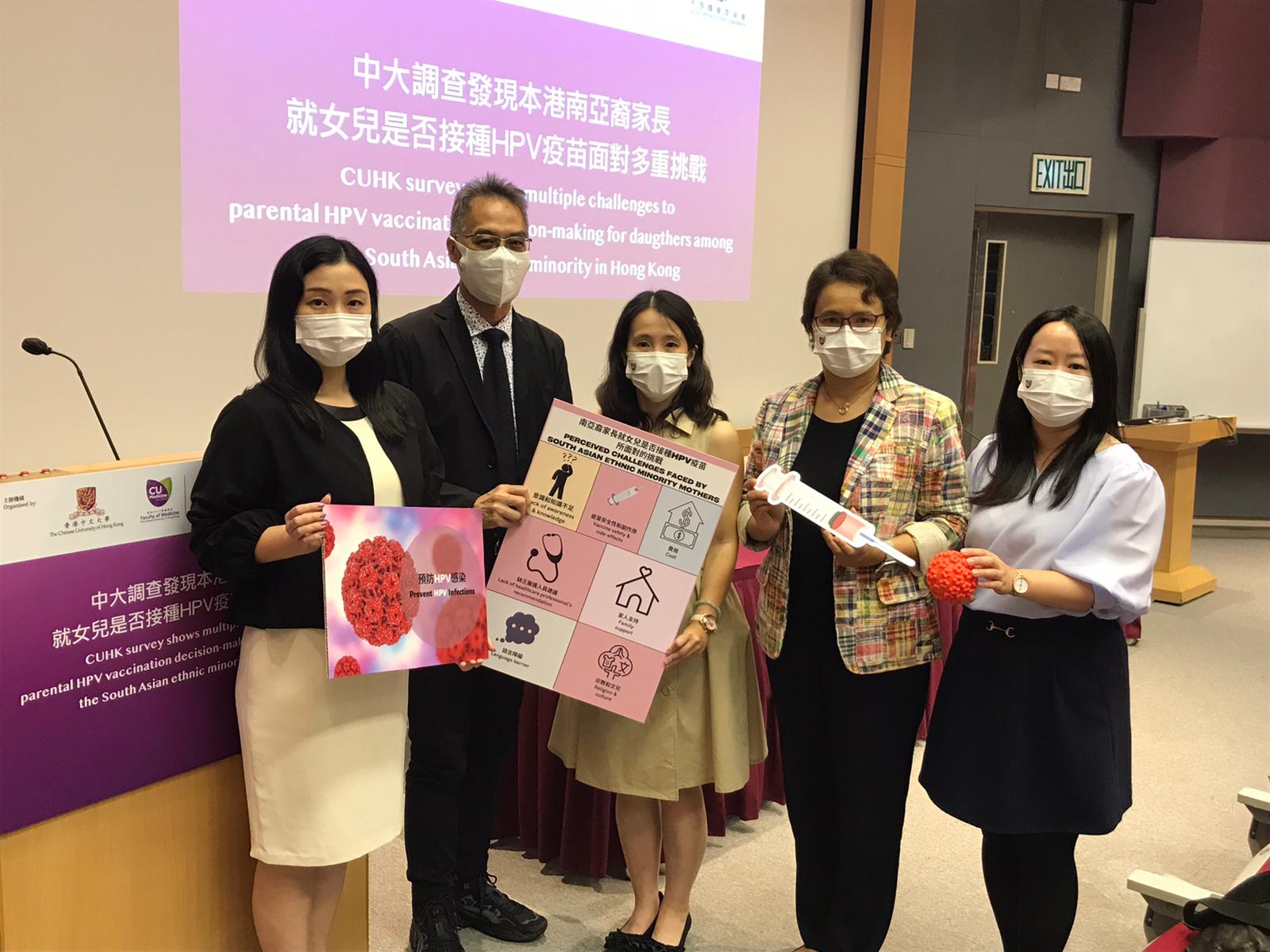
Study stresses need for better access to HPV information for non-ethnic Chinese
Local mothers of South Asian descent regard teachers and healthcare professionals as important sources of information about the health of their children. Yet, they are rarely informed about the need for their daughters to undergo HPV vaccination, according to a recent study conducted by The Chinese University of Hong Kong (CUHK) and funded by the EOC.
While HPV vaccines have proven to be effective in preventing HPV infections and cervical cancer, the rate of vaccination remains low in Hong Kong, especially among people of South Asian descent.
From May to September 2021, the Nethersole School of Nursing at CUHK’s Faculty of Medicine conducted focus group interviews with 73 mothers of Indian, Pakistani or Nepalese descent who have at least one nine to 17-year-old daughter. The objective was to identify the challenges they face in deciding whether their daughters should receive HPV vaccination, and how the Government could intervene to improve uptake.
It was found that the mothers generally demonstrated a lack of awareness and knowledge about cervical cancer, HPV infection and HPV vaccines. They also cited the high cost of vaccination as a major obstacle.
Language barriers were another noteworthy issue. An Indian mother reported that she had experienced difficulties when communicating with Chinese-speaking healthcare staff about arranging HPV vaccination for her daughter.
The respondents also shared the view that they would be more likely to let their daughters take the vaccine if vaccination were subsidised, or if vaccination programmes were organised by their schools or the Government.
In light of the findings, the research report recommended that the Department of Health’s school immunisation team could organise school-based health talks on cervical health and HPV vaccination for the mothers of Primary 4 and 5 students about six months prior to implementing the HPV vaccination programme.
To further widen access to HPV information, it is recommended that promotional materials, such as videos, posters and leaflets, should be prepared in relevant South Asian languages (e.g. Hindi, Urdu and Nepali) and disseminated via platforms commonly used by South Asian mothers (e.g. YouTube, Facebook and WhatsApp). Healthcare professionals should also be encouraged to offer advice on HPV vaccination to South Asian mothers of daughters aged 9 to 17 during health consultation.
To learn more about the research team’s recommendations, please click the links below.

